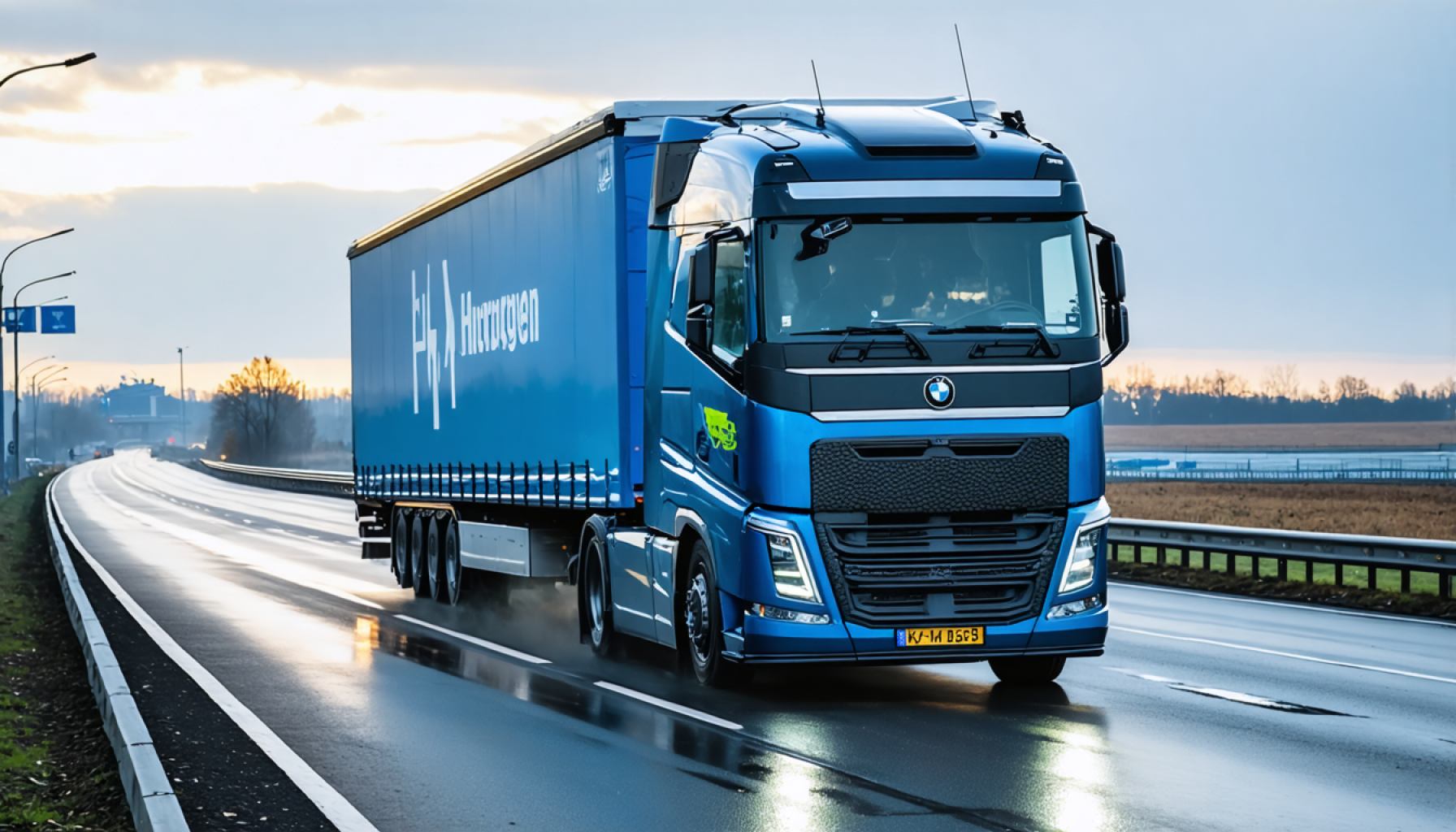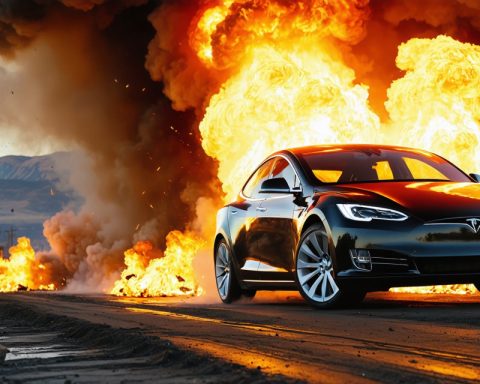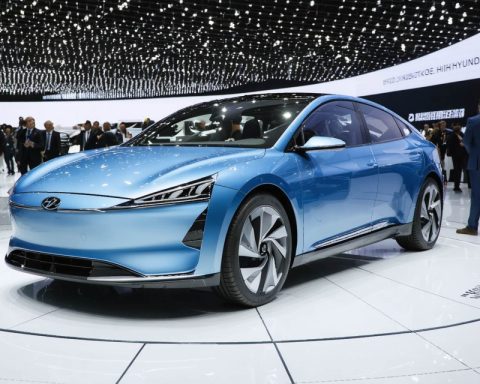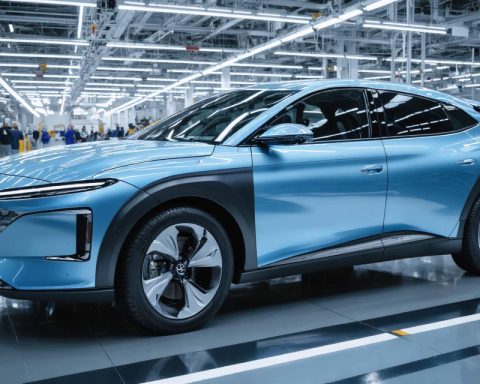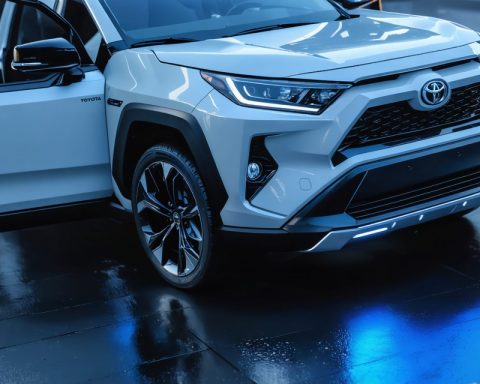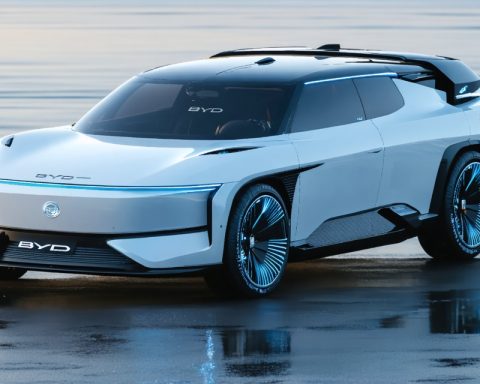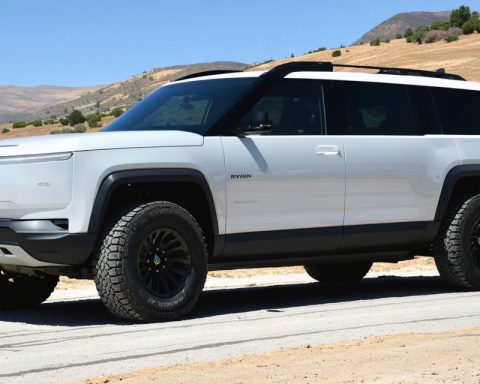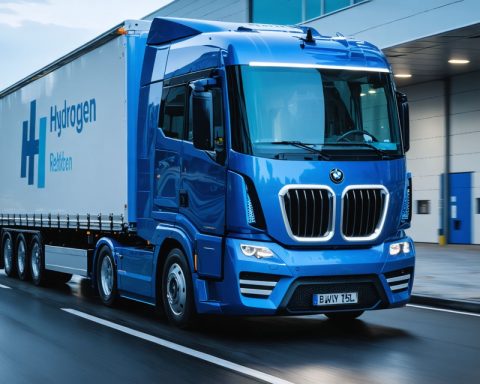- BMW launches hydrogen fuel cell trucks in Germany as part of the European H2Haul project, aiming for sustainable logistics.
- The initiative involves two emission-free trucks operating between Leipzig, Landsberg, and Nuremberg, supported by new hydrogen refueling stations in Leipzig and Hormersdorf.
- This project marks a significant step in BMW’s strategy to decarbonize logistics and reduce emissions across its operations.
- A separate HyCET initiative explores hydrogen combustion engine trucks, offering a blend of cost-efficiency and zero emissions.
- By 2028, BMW plans to introduce its first hydrogen-powered production model, complementing its range of electric, hybrid, and conventional vehicles.
The hum of progress whispers through Germany’s roads as BMW forges a daring path into the realm of hydrogen-powered logistics. Like trailblazers of old, the automaker charges into uncharted territory, rolling out its first hydrogen fuel cell trucks under the European H2Haul project. These futuristic road giants glide silently between Leipzig, Landsberg, and Nuremberg, carrying not just goods, but the weighty promise of cleaner air and sustainable transport.
BMW’s avant-garde initiative unfolds with the deployment of two emission-free trucks, orchestrating a dance of innovation across the picturesque German landscapes. These silent giants, part of a fleet envisioned to redefine logistics, herald a new era alongside the soon-to-rise hydrogen refueling stations in Leipzig and Hormersdorf. Like unsung heroes of industry, these stations promise swift refueling, essential for the relentless rhythm of goods movement.
This venture is no mere dalliance. It is a cornerstone in BMW’s grand strategy to decarbonize logistics, reducing emissions to whisper-thin shadows of their former selves. As the Leipzig plant hums with over 200 fuel cell-powered vehicles, the scent of hydrogen permeates the air, intoxicating with promise and potential.
BMW’s tech-forward strategy looks beyond this visionary project. The HyCET initiative explores hydrogen combustion engine trucks—a unique blend that unites cost efficiency with zero-emission prowess, neatly sidestepping regulatory hurdles.
On the distant horizon, 2028 heralds the birth of BMW’s first hydrogen-powered production model. This endeavor, part of a diverse mosaic of electric, hybrid, and traditional drives, signals a steadfast commitment to a sustainable future. For those riveted by innovation’s allure, the roads ahead glisten with intrigue, urging on a journey where technology meets the road—and paves it anew.
Hydrogen-Powered Trucks: The Future of Sustainable Logistics
How-To Steps & Life Hacks
1. Implementing Hydrogen Fuel in Logistics:
– Research & Development: Conduct comprehensive studies on hydrogen fuel cell technology and infrastructure requirements.
– Investment in Infrastructure: Establish hydrogen refueling stations, critical for the seamless operation of fuel cell vehicles.
– Pilot Programs: Start with a small fleet to iron out operational challenges, similar to BMW’s approach in Leipzig and Hormersdorf.
2. Maximizing Efficiency:
– Train logistics personnel in handling and maintaining hydrogen-powered vehicles.
– Integrate logistics software to monitor fuel usage and optimize routes for cost-effectiveness.
Real-World Use Cases
– BMW’s hydrogen trucks currently operate between key German cities like Leipzig, Landsberg, and Nuremberg, showcasing their viability in real-world logistics.
– Japanese car manufacturers like Toyota have similarly invested in hydrogen tech to power heavy-duty vehicles [1](https://www.toyota.com).
Market Forecasts & Industry Trends
– Growth in Hydrogen Economy: According to a report by the Hydrogen Council, the global hydrogen economy could generate $2.5 trillion in revenues by 2050, offering a significant opportunity for the logistics sector.
– EU Hydrogen Strategy: The European Union aims for 40 gigawatts of hydrogen electrolyzers by 2030, a move set to boost the adoption of hydrogen trucks across Europe.
Reviews & Comparisons
– Pros of Hydrogen Trucks:
– Zero emissions compared to diesel counterparts.
– Quick refueling times compared to electric vehicle charging.
– Cons:
– High initial infrastructure costs.
– Limited availability of refueling stations.
Controversies & Limitations
– Energy Efficiency: Critics argue that hydrogen trucks are less energy efficient than battery electric vehicles due to conversion losses in fuel cells.
– Environmental Concerns: Hydrogen production, if reliant on fossil fuels, can still contribute to carbon emissions.
Features, Specs & Pricing
– Performance: Hydrogen trucks typically boast a range of several hundred kilometers on a single refuel, rivaling diesel trucks.
– Pricing: Initial costs remain high due to the nascent stage of technology and infrastructure deployment.
Security & Sustainability
– Safety: Hydrogen requires stringent safety protocols due to its highly flammable nature, but advancements in storage and handling have mitigated many risks.
– Sustainability: When hydrogen is produced through electrolysis using renewable energy, it offers a truly green solution.
Insights & Predictions
– Future Trends: Industry experts predict hybrid models combining hydrogen and electric technologies will dominate future heavy-duty vehicle markets, balancing quick refueling with energy efficiency.
Tutorials & Compatibility
– Tutorial: Conduct regular maintenance checks on fuel cell systems to preserve efficiency.
– Compatibility: Ensure compatibility between hydrogen fuel system components and traditionally fueled systems.
Pros & Cons Overview
– Pros:
– Faster refueling compared to electric counterparts.
– Long range capabilities similar to diesel trucks.
– Cons:
– High costs and limited refueling networks.
– Dependency on green hydrogen production for environmental benefits.
Actionable Recommendations
– Leverage Government Incentives: Utilize subsidies and grants to offset initial costs.
– Invest in Infrastructure: Encourage public-private partnerships to accelerate the rollout of refueling stations.
– Consumer Education: Raise awareness among stakeholders about the benefits and limitations of hydrogen technology.
By exploring the untapped potential of hydrogen, companies like BMW not only contribute to environmental sustainability but also pave the road for an innovative future in the logistics industry.
For more information on hydrogen technology adoption, visit BMW and CNCB.
